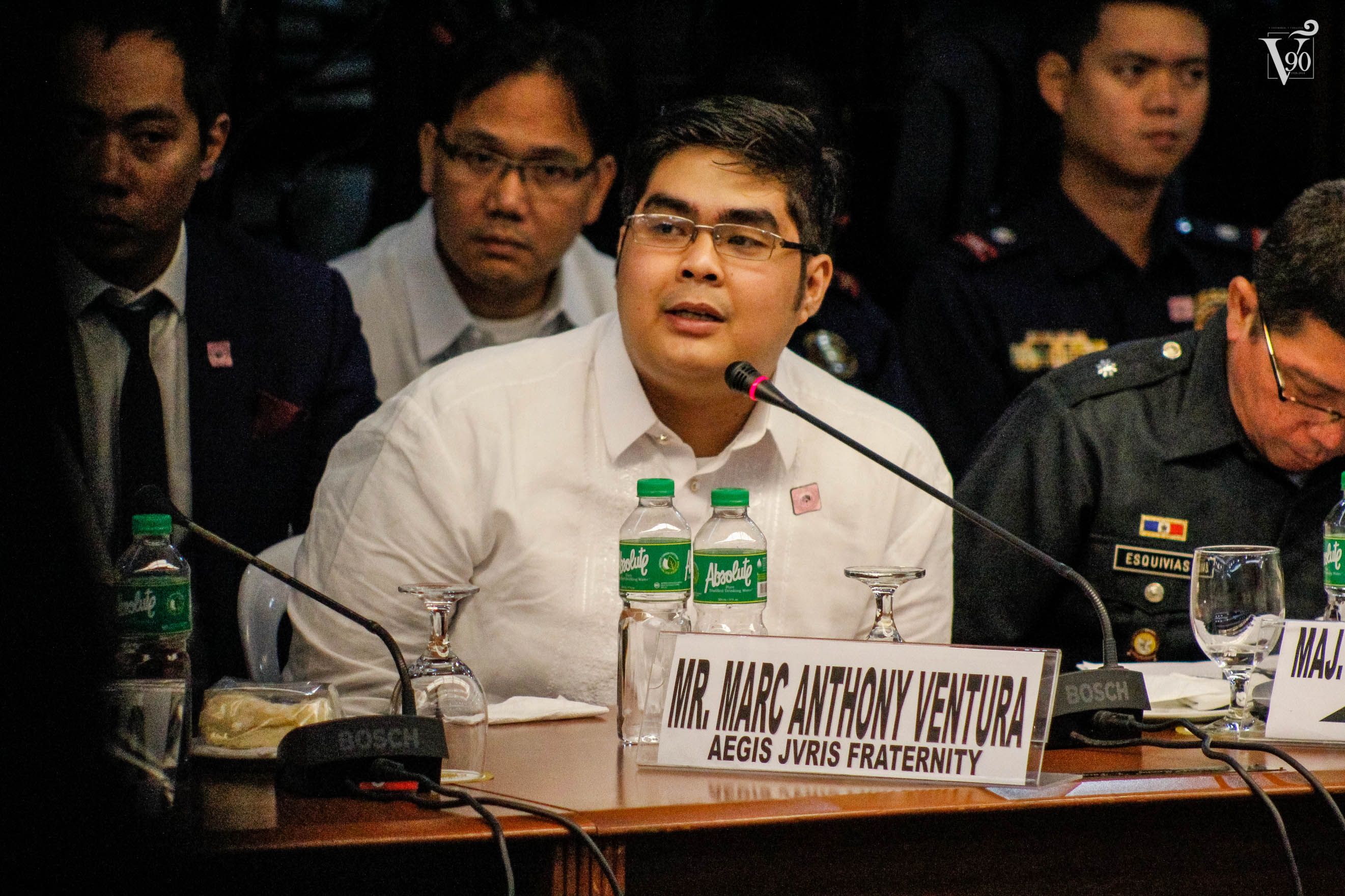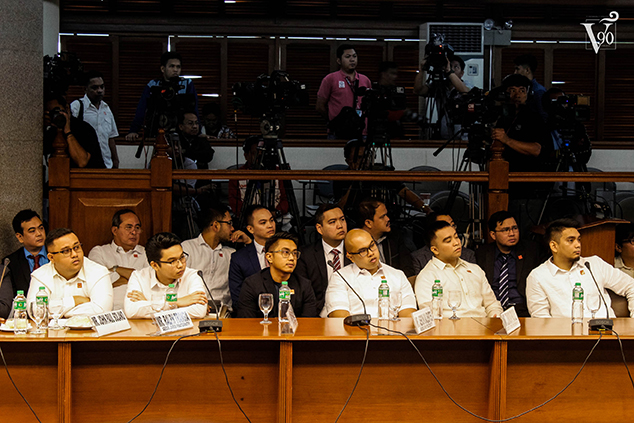WHERE THEY ARE NOW:
Key figures in the Atio hazing case
The Varsitarian takes a look at the key personalities and institutions involved in the hazing case.
Castillo family


The parents of the slain Civil Law freshman are confident that they will win the case against the 10 accused Aegis Juris fratmen.
Horacio Castillo Jr., Atio’s father, said the Department of Justice (DoJ) had formed a “very good” prosecution team after the DoJ presented the paddle allegedly used by the fratmen at the Manila Regional Regional Trial Court (RTC) Branch 20.
“The evidence is strong. We have a dead person, that is the strongest evidence,” Atio’s mother Carmina said.
State witness

Mark Anthony Ventura turned against his fraternity “brods” when he agreed to become a state witness in the hazing case.
The former secretary of Aegis Juris executed an affidavit and signed a memorandum of agreement with the Department of Justice to join the government’s witness protection program.
In the first hearing, he turned emotional upon naming his fraternity brothers, the 10 accused Aegis Juris fratmen, as responsible for the hazing death.
Aegis Juris fratmen

The officers of Aegis Juris are behind bars.
Detained at Manila City Jail, the 10 officers voluntarily turned themselves in to the National Bureau of Investigation after the Manila RTC ordered their arrest for violating the Anti-Hazing Law.
In the first hearing of the trial of Atio’s hazing death, state witness Mark Ventura testified against his fraternity “brods” involved in the hazing, namely: Arvin Balag, Ralph Trangia, Oliver John Audrey Onofre, Mhin Wei Chan, Danielle Hans Matthew Rodrigo, Joshua Joriel Macabali, Axel Munro Hipe, Marcelino Bagtang, Jose Miguel Salamat and Robin Ramos.
The accused Aegis Juris fratmen all pleaded not guilty during their arraignment at the Manila RTC last July 24.
Civil Law Dean Nilo Divina

The Civil Law dean faced charges for allegedly having knowledge of the hazing rites, together with Arthur Capili, the faculty secretary of the Civil Law.
Divina, one of the notable alumni of Aegis Juris Fraternity, has denied all allegations, saying he took a leave from the fraternity upon assuming deanship in 2009.
“I am not aware of any hazing activity. We prohibit and denounce hazing in any form or manner. We also prohibited recruitment of first-year students to any fraternity,” Divina said in an earlier interview.
In a Senate inquiry last Sept. 25, 2017, Divina, Capili and Asst. Prof. Irvin Fabella, who all claimed to be “inactive” members of the fraternity, admitted that they found out about Castillo’s death at around noon on Sept. 17, Sunday.
A Senate panel recommended to the Supreme Court the disbarment of Divina and Capili along with other lawyers who are also alumni of the Aegis Juris.
On March 6, the Justice department cleared Divina and Capili of charges of involvement in Atio’s hazing death for “insufficiency of evidence.”
“I have always maintained my full innocence throughout this unfortunate incident, and thankfully, this has now been established beyond question. As they say, the moral arc of the universe may be long but it bends towards justice,” Divina said in a statement.
The University

Recognition and operations of all fraternities and sororities in the University have been suspended by order of the Office for Student Affairs (OSA).
In a memorandum released in May 2018, OSA directed fraternities and sororities to indefinitely “cease and desist” from recruiting members or “engaging in any kind of activities.”
The memorandum likewise prohibited students from joining fraternities, sororities and unrecognized student organizations pursuant to the University’s Code of Conduct and Discipline.
In March 2018, the University expelled eight out of the 10 accused Aegis Juris fratmen from the Faculty of Civil Law, after finding them guilty of violating the Student Code of Conduct and Discipline.
The administration did not name the eight students who were kicked out.
